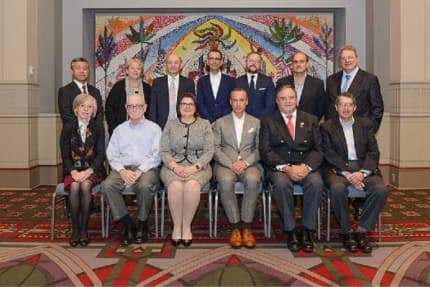Profession of a risk manager
Twenty years ago, as risk managers, company presidents sought to hire insurance business professionals so that they could act as a buffer between the company’s management and the mysterious world of insurers. According to a research report on “Risk management in enterprises: trends and new techniques” conducted in early 2002 by the well-known American research agency Tillinghast-Towers Perrin, typical modern managers of enterprise risk management services are not narrow specialists in risk management – their careers developed in most cases in more general management functions. (including internal audit). This confirms that a risk manager requires the proactive thinking of a strategic manager and coach.
In the field of risk management, the profession of a specialist risk manager is also being formed. Specialists in identification, analysis, monitoring and specific types of risk help to form and justify an integrated risk management program.
In commercial, financial, government organizations, educational institutions, and almost all organizations, risk managers mainly worked with insured risks. At the same time, line managers are primarily interested in business risks such as competitive, operational, and personnel uncertainties. It follows that any business management is risk management in one way or another, and any line manager is largely a risk manager.
In a market society, it is the firm that is responsible for paying all damages that have occurred due to its actions or omissions. And claims for such damages can be devastating. In the modern world, every employee largely becomes a risk manager, and risk management itself in a well-managed company becomes a “divided collective profession.” It is this approach that makes it possible to resolve the contradiction between the growing need for risk managers and the high demands placed on them.
In order to outline the current state of the Profession, here are some statistics. According to a study conducted in 2000 and 2001. The Conference Council of Canada, the Center for Enterprise Risk Management at the University of Georgia, and the Tillinghast Towers Perrin Agency:
85% of CRO (Chief Risk Officer) work in the energy, utilities, insurance, banking and financial services sectors.
50% of the surveyed organizations reported that they had a CRO position only in the last 2 years, 20% in the last 3 years, and only 1% in the last 5 years. Three groups of reasons for creating this position: 1) centralization and coordination of risk management; 2) implementation of an integrated approach to risk management; 3) improvement of awareness of the management, board of directors and other interested groups about the risk position of the organization.
The most important qualifications for a CRO position are: communication skills (18%), ability to manage (8%), knowledge of accounting and reporting (accounting) (15%), knowledge of finance (22%), knowledge of mathematics and statistics (24%), education in risk management (13%).
45% of CROS report directly to the top manager of the organization; 35% to the top financial manager of the organization and 20% to other officials.
In the foreseeable future, CRO positions will be created by financial and infrastructure companies, trading firms, telecommunications companies, and large multinational companies. The majority of respondents predict the creation of more modest integrated risk management services in a variety of firms in most industries.



